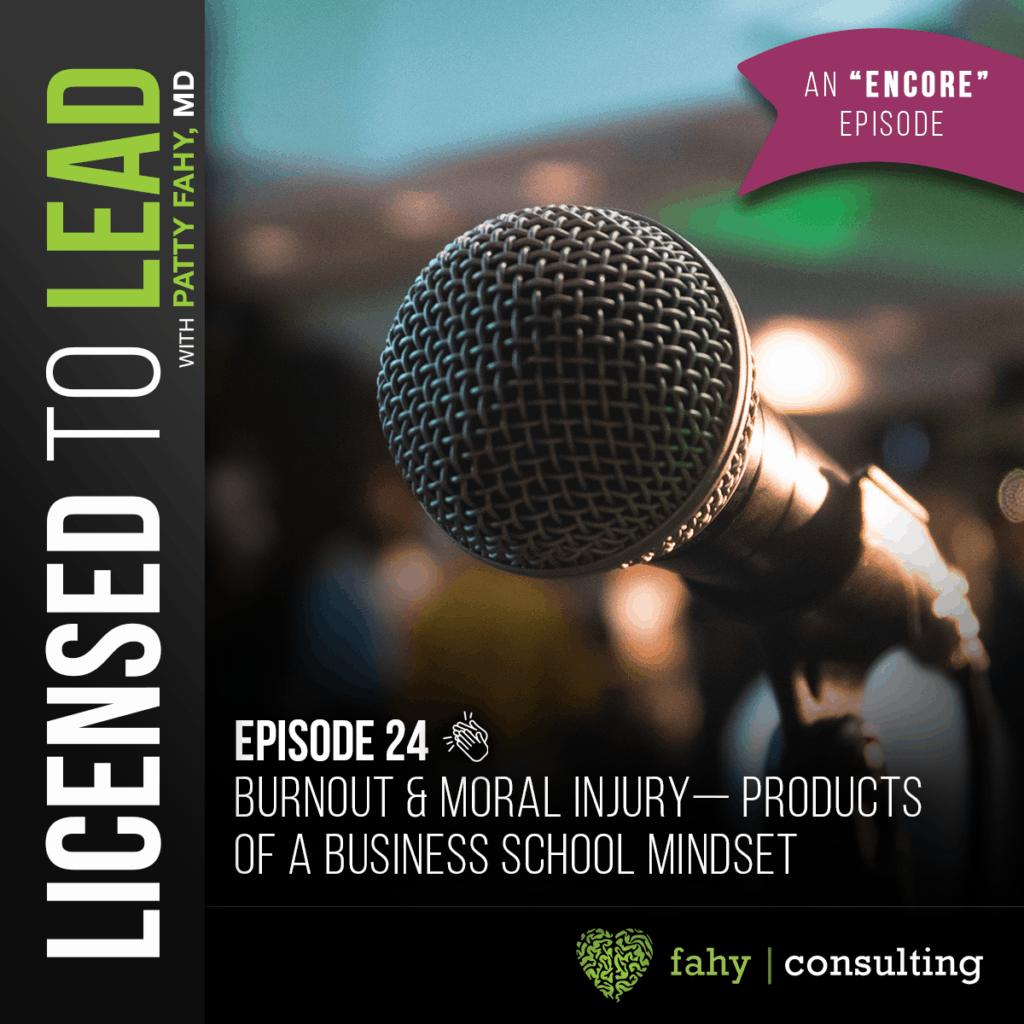
Episode 24 – Burnout and Moral Injury: Products of a Business School Mindset
In this encore episode, I’m touching on some of the enormous quantity of research that has been directed at physician burnout. We have clear and convincing descriptions of the causes of physician burnout. What we don’t have, is a lot of action directly tackling those causes.
How is it that healthcare leadership has had a lackluster response to the crumbling careers of those whose credentials are required to open a hospital? Whether it’s the head honchos of healthcare systems, advocacy organizations, or hospitals — the response to physician disaffection has been anemic. In many cases, disingenuous.
A case in point is captured in this week’s encore excerpt.
Ten prominent healthcare system CEOs and the CEO of the AMA put their heads together and published Physician Burnout is a Public Health Crisis: a Message to our Fellow Healthcare CEOs. They presented this call to action by saying: “Addressing the issue of burnout is a matter of absolute urgency.”
I walk through their “Call to Action” and raise the question: where’s the action? Where are the decisive moves and hard dollar commitments to knock down barriers and build up solid systems that work? It’s a cringe-worthy list of waffle words like monitoring, tracking, and trying. In this podcast I offer up a few of my own suggestions that are better suited to be on a list regarded as a “matter of absolute urgency.” To hear the original full-length episode click here.
What will it take to get physicians from being commoditized assembly line workers who pose a flight risk—to well-supported professionals with the autonomy required to serve patients (not profits)?
Here’s what:
- Leadership courage to speak clearly about the issues, ditch the waffle words and B.S. — and to sponsor real bucks for real fixes.
- A professional leadership ideology that recognizes the following as critical foundational leader traits: superb technical expertise, profound respect among peers and staff, and deep tacit knowledge of the profession.
- New leaders — with MDs and DOs behind their names.
Resources:
Ending Physician Burnout Global Summit
Frederick Herzberg HBR One More Time–How Do You Motivate Employees?
SIGN UP FOR OUR NEWSLETTER: http://bit.ly/LicensedToLeadNewsletter





